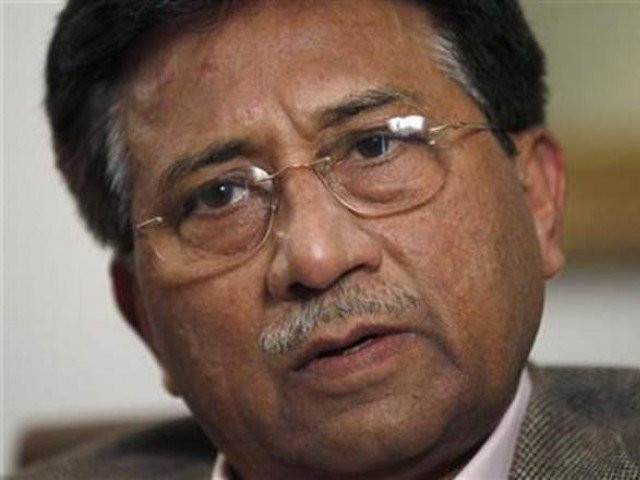CJP takes up Musharraf's appeal today
Ex-military ruler challenges SC’s refusal to entertain his plea against special court verdict in treason case

Ex-military ruler challenges SC’s refusal to entertain his plea against special court verdict in treason case. PHOTO: FILE
The former military ruler had filed an appeal in the apex court in January, seeking to overturn the special court’s verdict that found Musharraf guilty of high treason and handed him death sentence under Article 6 of the Constitution.
The registrar office had returned the plea on the grounds that unless the petitioner surrendered himself, his appeal could not be entertained. Order 23, Rule 8 of the Supreme Court Rules, 1980, empowers it not to accept any petition unless the convict surrenders to the authorities.
The counsel for Musharraf then proceeded to file an appeal against the SC registrar’s decision.
Chief Justice of Pakistan Justice Gulzar Ahmed will hear the arguments on the appeal in his chamber. The registrar office has issued a notice to Musharraf's counsel in this regard.
Petitioner moves IHC against PHC chief justice over Musharraf treason verdict
Musharraf's appeal
The appeal stated that Musharraf’s health declined significantly requiring specialised treatment abroad and he was given permission and approval of the court to leave the country on medical grounds.
Former president’s attorney Salman Safdar, while filing the appeal, stated that the requirement of surrendering Musharraf is not applicable owing to his health condition.
It also mentioned that the former military dictator tried to return to Pakistan but was unable to because of his deteriorating health.
The petition also stated that the former president ‘deserves’ that his appeal be entertained and heard by the Supreme Court.
It mentioned that Musharraf is neither a ‘fugitive from law’, nor is he a ‘proclaimed offender’ or ‘absconder’ – particularly because he left Pakistan for medical treatment, with permission of the complainant.
Musharraf was diagnosed with Cardiac Amyloidosis and has been unable to travel because of his health.
“It is not a case of ‘jail break’ or ‘fleeing from court’ after hearing the conviction and sentence.”
Musharraf challenges SC registrar’s decision to turn down plea against conviction
“Moreover, the impugned judgment and sentence was announced in his absence, therefore, a direct appeal should also be entertainable in his absence.”
In January, the Registrar Office returned Musharraf’s plea after raising an objection under Supreme Court Rules 1980 that says a convict has to surrender to the authorities before filing an appeal.
An attorney for the former military confirmed the development, saying that his client can appeal against the Registrar Office’s decision within 30 days.
Interestingly, Musharraf filed the appeal in the apex court even though a three-judge bench of the Lahore High Court (LHC) has already declared unconstitutional the filing of high treason case against him, formation of the Special Court as well as its proceedings, leading to the abolition of the death penalty handed down to him on Dec 17.


















COMMENTS
Comments are moderated and generally will be posted if they are on-topic and not abusive.
For more information, please see our Comments FAQ